第60章 IV(1)
It must not be assumed, as some are fond of saying, that democracy is simply that form of government in which the greater number are sovereign, for in oligarchies, and indeed in every government, the majority rules; nor again is oligarchy that form of government in which a few are sovereign. Suppose the whole population of a city to be 1300, and that of these 1000 are rich, and do not allow the remaining 300 who are poor, but free, and in an other respects their equals, a share of the government- no one will say that this is a democracy. In like manner, if the poor were few and the masters of the rich who outnumber them, no one would ever call such a government, in which the rich majority have no share of office, an oligarchy.
Therefore we should rather say that democracy is the form of government in which the free are rulers, and oligarchy in which the rich; it is only an accident that the free are the many and the rich are the few. Otherwise a government in which the offices were given according to stature, as is said to be the case in Ethiopia, or according to beauty, would be an oligarchy; for the number of tall or good-looking men is small. And yet oligarchy and democracy are not sufficiently distinguished merely by these two characteristics of wealth and freedom. Both of them contain many other elements, and therefore we must carry our analysis further, and say that the government is not a democracy in which the freemen, being few in number, rule over the many who are not free, as at Apollonia, on the Ionian Gulf, and at Thera; (for in each of these states the nobles, who were also the earliest settlers, were held in chief honor, although they were but a few out of many). Neither is it a democracy when the rich have the government because they exceed in number; as was the case formerly at Colophon, where the bulk of the inhabitants were possessed of large property before the Lydian War. But the form of government is a democracy when the free, who are also poor and the majority, govern, and an oligarchy when the rich and the noble govern, they being at the same time few in number.
I have said that there are many forms of government, and have explained to what causes the variety is due. Why there are more than those already mentioned, and what they are, and whence they arise, I will now proceed to consider, starting from the principle already admitted, which is that every state consists, not of one, but of many parts. If we were going to speak of the different species of animals, we should first of all determine the organs which are indispensable to every animal, as for example some organs of sense and the instruments of receiving and digesting food, such as the mouth and the stomach, besides organs of locomotion. Assuming now that there are only so many kinds of organs, but that there may be differences in them- I mean different kinds of mouths, and stomachs, and perceptive and locomotive organs- the possible combinations of these differences will necessarily furnish many variedes of animals. (For animals cannot be the same which have different kinds of mouths or of ears.) And when all the combinations are exhausted, there will be as many sorts of animals as there are combinations of the necessary organs. The same, then, is true of the forms of government which have been described; states, as I have repeatedly said, are composed, not of one, but of many elements. One element is the food-producing class, who are called husbandmen; a second, the class of mechanics who practice the arts without which a city cannot exist; of these arts some are absolutely necessary, others contribute to luxury or to the grace of life. The third class is that of traders, and by traders I mean those who are engaged in buying and selling, whether in commerce or in retail trade. A fourth class is that of the serfs or laborers. The warriors make up the fifth class, and they are as necessary as any of the others, if the country is not to be the slave of every invader. For how can a state which has any title to the name be of a slavish nature? The state is independent and self-sufficing, but a slave is the reverse of independent. Hence we see that this subject, though ingeniously, has not been satisfactorily treated in the Republic. Socrates says that a state is made up of four sorts of people who are absolutely necessary; these are a weaver, a husbandman, a shoemaker, and a builder; afterwards, finding that they are not enough, he adds a smith, and again a herdsman, to look after the necessary animals; then a merchant, and then a retail trader. All these together form the complement of the first state, as if a state were established merely to supply the necessaries of life, rather than for the sake of the good, or stood equally in need of shoemakers and of husbandmen. But he does not admit into the state a military class until the country has increased in size, and is beginning to encroach on its neighbor's land, whereupon they go to war. Yet even amongst his four original citizens, or whatever be the number of those whom he associates in the state, there must be some one who will dispense justice and determine what is just.